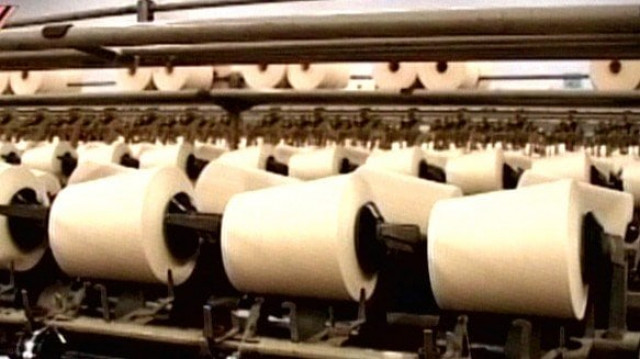Yarn shortage pushing industries towards closure
Textile exporters say exports have dropped drastically , warn of massive layoffs

Textile exporters have lamented that the aggravating cotton yarn crisis due to its shortage has caused a drastic decline in exports, pushing industries on the verge of closure and sparking fears of layoffs of millions of workers.
At a joint press conference of various textile associations, Pakistan Apparel Forum Chairman Jawed Bilwani said, “The government has closed its eyes on the hoarding of cotton yarn and cartelisation, which can be dealt with as per law under the Price Control and Prevention of Profiteering and Hoarding Act 1977 and Competition Act of Pakistan 2010.”
The entire nation decried the sugar scandal but silence over the cotton yarn crisis faced by the value-added textile sector exporting goods worth Rs1,980 billion was incomprehensible, highlighted Bilwani.
Echoing Bilwani’s views, Pakistan Hosiery Manufacturers and Exporters Association Chairman South Zone Tariq Munir stated that it appeared that the government had given complete liberty to the spinning mills and yarn traders for creating monopoly and hoarding.
“The Price Control and Prevention of Profiteering and Hoarding Act 1977 is selfexplanatory, which also covers yarn, by suggesting legal action in case of violations,” Munir said.
“Internationally, prices of cotton and cotton yarn have decreased, however, in Pakistan the prices of cotton yarn are exorbitantly high,” said Pakistan Readymade Garments Manufacturers and Exporters Association Chief Coordinator Shaikh Shafiq.
Bilwani added that it seemed that some people in the government were playing a role contrary to the policies of Prime Minister Imran Khan to hurt exports and deal a blow to the foreign exchange earnings.
“It is a fact, which has also appeared in the media in the past several months, that textile exporters have been urging the government to allow duty-free import of cotton yarn,” Munir said.
Adviser to PM on Commerce and Investment Abdul Razak Dawood supported the exporters and regulatory duty was abolished, but customs duty was not removed due to resistance by some cabinet members, he said.
Complete remedy was not provided to the textile exporters, who again appealed to the government to allow import of cotton yarn from neighbouring India through the land route due to congestion of sea traffic and containers at ports.
The Economic Coordination Committee’s proposal to allow import of cotton yarn from India compelled the local spinners and cotton yarn traders to reduce prices of yarn, however, the cabinet deferred decision on the proposal, he said.



















COMMENTS
Comments are moderated and generally will be posted if they are on-topic and not abusive.
For more information, please see our Comments FAQ